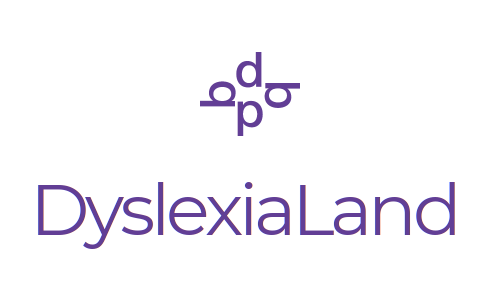Coffee, Talk and Tears: On Meeting with Mothers of Dyslexic Children
 Dispatches from DyslexiaLand by Cheri Rae
Dispatches from DyslexiaLand by Cheri Rae
Worried mothers contact me by phone, email and social media; they introduce themselves and launch into vivid descriptions of how they are struggling with the Education Establishment as they to find help for their bright dyslexic children who are struggling to read, write and spell. They typically have been very resourceful at finding the limited number of affordable services children in our community—but are flummoxed when their children age out and there is no more help available.
They need direction, reassurance and conversation about dyslexia—which pretty much no one wants to talk about, particularly those in the education community. Those who live near me typically ask to meet for coffee.
I can’t say no.
It’s not my job, but it’s become my calling. I was once in their place of confusion, seeking insight and assistance. I was lucky to find the kind of support they need it in the form of a very wise and now-retired advocate who ran a local dyslexia non-profit—so now it’s up to me to pay it forward.
We share an immediate bond, as mothers united in a cause—some would call it a crusade—just to obtain an appropriate education for our children, without subjecting them to the emotional damage that’s all too real for far too many. It is lonely and heartbreaking to mother a smart child who is working too hard in school with too little results—with few easy answers and more mystery than mastery for a long, long time.
We usually meet for a couple of hours—always more time than we intended—in coffeehouses all over town. It’s not the caffeine that gives me the jitters that this familiar angst about school is felt so widely, so deeply, and for so long. It’s just that it never, ever ends—not for generations of mothers who have come up against the dyslexia-denying culture in our public schools.
We share stories about how we stay up late into the night searching the internet for a miraculous revelation that changes everything; we agonize about where to find thousands of dollars to pay for private tutoring to make up what the school won’t do; we are terrified about what the future holds for our children. We pore over statistics about how third-grade reading levels determining the number of prison beds needed; of high levels of anxiety among struggling readers; of dyslexic misspellings in suicide notes. We admit that in those dark hours we weep alone.
Our sense of familiarity emboldens us to speak of our deep fears we dare not say to others who do not understand. We are part of a sorority that simply knows the spirit of our children, their great potential and their strong desire to succeed. We know the heartbreak, how the magic of childhood ended for our little ones when the misery of school began. In the warm comfort of camaraderie over coffee, we weep together.
The mothers I’ve recently met with comprise a range of the dyslexia experience:
~The 3rd grader whose teacher thinks he has ADD, and suggests the mother get him on medication. He’s been privately assessed, and he doesn’t; he’s simply not engaged in the reading program that is inappropriate for his dyslexic needs.
~The 4th grader who attends a private school and works with an educational therapist to great result, but it’s costing the family a small fortune to pay for the tuition and supplementary specialized instruction—and Dad is getting nervous about whether or not the investment is worth it.
~The 6th grader who was warehoused in special education class for four hours a day for an entire school year without receiving instruction appropriate for a dyslexic student. He still can’t read, write, spell or do math anywhere close to grade level.
~The high-schooler who avoided reading in elementary school by hiding under her desk, who was finally identified with dyslexia this year and offered a 504 plan;
~The 20-year-old who graduated in 2016 who still wants to learn to read, write and spell so he can get a better job than delivering restaurant meals.
These women are bright, strong, determined mothers who are dedicated to doing everything they can to help their children succeed. Additionally, they are nice, sweet, thoughtful and kind with no intention of raising a fuss or causing problems with the schools—but too often they encounter the bureaucratic resistance from educators that sends the very clear message: If you push too hard, we won’t like you anymore. And we might not like your kid either.
We politely call this kind of conversation “advocating.” In reality, it’s fighting with school officials who don’t even use the word “dyslexia,” much less deliver appropriate services.
The reason it’s a fight is quite simple: The Education Establishment does not teach dyslexic students in the way they learn.
When we seek help at the school, we participate in meetings with educators who typically offer little insight, information or illumination about why they cannot deliver appropriate instruction to our struggling children. Initially, we trust and believe that teachers are well-qualified to teach reading. Only after much research do we finally learn that a teaching credential does not necessarily correlate with knowledge about the science of reading, the latest research about the reading brain or how the “whole language” approach so in vogue today is so different from actually teaching to read the English language in a direct, structured, explicit way.
We mothers are left to meet, share our stories, suggest strategies and make plans on what to do the next year, and the next. We speak of how our dyslexic children exhibit great strengths and resilience, how they are filled with great potential, with a wealth of talent, and with great, big hearts they share with the world. We know they are worth the investment it takes to teach them what they need to know, and how they need to learn it. From Day One in Kindergarten all the way until Graduation Day.
If only educators would learn that, too. I’d love to have a nice chat with any who are interested; yes, over a steaming cup of coffee.
Cheri Rae is the author of DyslexiaLand: A Field Guide for Parents of Children with Dyslexia


